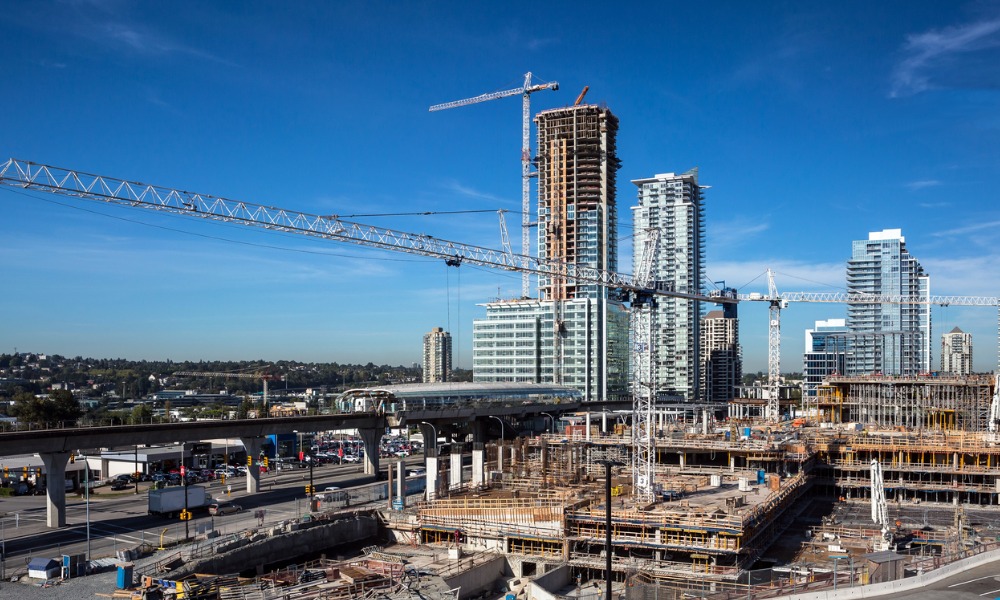'Numbers very concerning' says crane safety association

In the wake of a series of incidents involving tower cranes in British Columbia, the state of crane safety in the province has come under intense scrutiny.
"When we look at the recent spate of unfortunate events relating to tower cranes, they are extremely concerning," says Clinton Connell, executive director of BC Crane Safety.
There were two incidents within four days in January, and fortunately nobody was hurt. But a third incident in February caused the death of 41-year-old mother of two Yuridia Flores. A rally was held on Friday calling for justice and better safety conditions.
Protest in the name of safety
Organizers told CityNews Flores died because of alleged “negligent safety standards from the construction company.”
And a worker, who identified himself as Dave, says “the site still runs as normal… we’ve had safety precautions implemented that have essentially just been ‘don’t stand by cranes,’ and it’s just treated like it’s nothing.”
EllisDon is in charge of the construction site and spokesperson Dustin Luchka says the company is committed to safety. “Any safety challenges or reports of un-safe behaviour faced on this project site, or any of our sites, is investigated and dealt with immediately. We are committed to upholding the highest level of safety protocols for ourselves and our subtrades on every site.” Luchka adds the company is cooperating with WorkSafeBC’s investigation.
There was also a fourth incident in March, and nobody was hurt. “From what we know so far, there isn't necessarily a common thread between the nature of the incidents, which is equally concerning," explains Connell.
Crane training gaps
Indeed, the issue appears to be multifaceted, with Connell noting that while significant progress has been made in crane safety regulations over the past two decades, there are still gaps in training availability and areas for improvement.
Recent revelations by WorkSafeBC have only added to the growing concerns. In 2023 alone, WorkSafeBC issued more than 500 non-compliance orders regarding cranes, signaling a pressing need for enhanced safety measures. Connell says it’s difficult to fully understand the severity of the situation.
"The numbers are very concerning, but without comparative data, it's challenging to gauge the magnitude of the issue," Connell stated.
One of the most significant incidents in recent memory is the crane collapse in Kelowna, which killed five people. Despite the conclusion of the RCMP's investigation and recommendations for criminal negligence charges, WorkSafeBC has yet to release its full investigation report, much to the frustration of the victims' families and industry stakeholders.
"We feel the frustration of the families of the victims," Connell expressed. "It's tough for us to comment when we don't have the details. Having the full report would be instrumental in understanding the causation factors and implementing necessary improvements."
Compulsory trade consideration
There have been calls for decisive action to improve crane safety in the province. One such proposal is the compulsory trade designation for tower crane operators, a measure supported by BC Crane Safety. "Accelerating the acceptance and rollout of associated technical training programs is crucial to addressing the gaps in training availability," says Connell.
SkilledTradesBC is the provincial body which decides if an occupation should be deemed a compulsory trade. In an email to Canadian Occupational Safety, it says it is considering the idea.
“An application was submitted for the Tower Crane Operator...Trades identified through the new process for Skilled Trades Certification are expected to be announced later this year.”
While acknowledging the complexities of the industry, Connell stressed the importance of continuous improvement in all aspects of crane safety.
"Any improvement is welcome, but there's no magic bullet," Connell asserted. "It's about tightening regulations, enhancing enforcement, improving preventative maintenance practices, and expanding training capacity."
As British Columbia grapples with the challenges of ensuring crane safety, stakeholders are urged to work collaboratively towards comprehensive solutions that prioritize the well-being of workers and the public alike.





